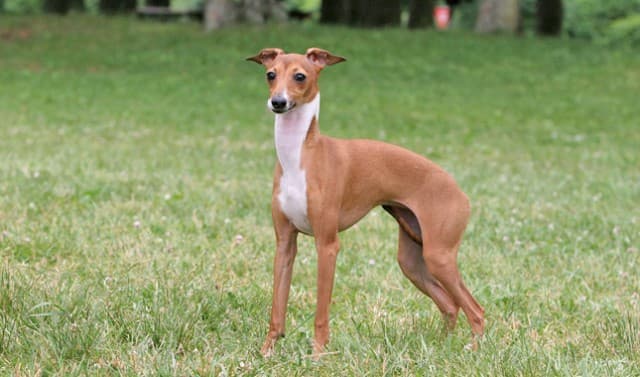Why Choose the Smallest Dog Breeds?
Tiny dogs offer big love in small packages. They're perfect for urban living, easy to travel with, and make devoted companions.
Perfect for Small Spaces
Tiny dogs are ideal for apartment living and small homes. They don't need large yards and can get adequate exercise indoors or with short walks. Their small size makes them perfect for city dwellers.
Easy to Transport
Small dogs can fly in-cabin on planes, ride in carriers, and accompany you almost everywhere. They're perfect travel companions and can fit into a purse or small carrier for easy transport.
Big Personalities
Don't let their size fool you! Tiny dogs have huge personalities and boundless confidence. They're loving, loyal, and often don't realize how small they are. Many are fearless and spirited.
The Tiniest Dog Breeds
The smallest dogs in the world, typically weighing under 10 pounds when fully grown.

Chihuahua

Pomeranian

Toy Fox Terrier

Russian Toy

Yorkshire Terrier

Maltese

Poodle

Japanese Chin

Yorkshire Terrier (Long Coat)

Papillon

Bolognese

Zuchon

English Toy Terrier

Lancashire Heeler

Italian Greyhound

Pekingese

Affenpinscher

Havanese

American Eskimo Dog (Miniature)

Miniature Pinscher

Silky Terrier

Brussels Griffon

English Toy Spaniel

Rat Terrier

Shih Tzu

Lowchen

Tibetan Spaniel

Coton de Tulear

Poodle (Miniature)

Chinese Crested

Norfolk Terrier

Norwich Terrier

Miniature Schnauzer

Toy Terrier

Miniature American Shepherd
Tiny Dog Breed Spotlight
Chihuahua: The World's Smallest Dog
Chihuahuas are the smallest dog breed in the world, typically weighing just 2-6 pounds. Despite their tiny size, they have enormous personalities and fearless attitudes. Chihuahuas are loyal, loving companions who bond strongly with their owners. They come in various colors and coat types (smooth and long-haired). Deer head Chihuahuas and apple head Chihuahuas have slightly different appearances. These tiny dogs are perfect for apartment living and make devoted lap dogs. They can be wary of strangers and need early socialization.
Yorkshire Terrier: The Elegant Toy
Yorkshire Terriers, or Yorkies, are tiny dogs with silky, floor-length coats and big personalities. Weighing around 4-7 pounds, they're perfect for apartment living. Yorkies were originally bred to catch rats in textile mills but are now beloved companion dogs. They're confident, feisty, and often act like much larger dogs. Their beautiful blue and tan coat requires regular grooming to prevent matting. Yorkies are intelligent and can be trained for various tricks. They're loyal to their families and make excellent watchdogs despite their small size.
Pomeranian: The Fluffy Ball
Pomeranians are fluffy, fox-faced toy dogs weighing 3-7 pounds. They're descendants of larger Spitz-type dogs and were favorites of Queen Victoria. Poms are lively, intelligent, and confident dogs with luxurious double coats that come in many colors. Despite their small size, they're alert watchdogs and can be vocal. Pomeranians are social, playful, and love being the center of attention. They require regular grooming to maintain their beautiful coats. Poms are adaptable and do well in various living situations.
Toy Poodle: The Intelligent Tiny
Toy Poodles are the smallest variety of Poodle, weighing 4-6 pounds. They combine beauty, intelligence, and athleticism in a tiny package. Toy Poodles are among the smartest dog breeds and excel at training and dog sports. Their hypoallergenic, non-shedding coats make them popular for people with allergies. They're active, playful, and love learning tricks. Toy Poodles are excellent family dogs and get along well with children when properly socialized. They require regular grooming and mental stimulation.
Caring for the Smallest Dogs
Health & Safety Considerations
Tiny dogs are fragile and can be easily injured. They're at risk if dropped or stepped on, so supervision is crucial. Many small breeds have dental issues due to crowded teeth - regular dental care is essential. They may be prone to hypoglycemia (low blood sugar), especially as puppies. Small dogs often have luxating patellas (slipping kneecaps). Keep them warm in cold weather as they lose body heat quickly.
Training & Socialization
Small dogs need training just like large dogs! "Small dog syndrome" occurs when owners don't set boundaries. Train consistently and don't allow behaviors you wouldn't accept in a large dog. Early socialization prevents fearfulness and aggression. Many tiny dogs can be stubborn, so patience and positive reinforcement work best. Potty training can be challenging with small breeds - consistency is key.
Exercise & Activity
While small dogs don't need as much exercise as large breeds, they still need daily activity. Short walks, play sessions, and indoor games provide adequate exercise. Many tiny dogs are energetic and playful despite their size. Be careful in extreme weather - they're sensitive to cold and heat. Indoor activities work well for exercise on bad weather days.
Feeding & Nutrition
Small dogs have fast metabolisms and may need to eat 2-3 small meals daily. Use food formulated for small breeds with appropriate kibble size. Watch portions carefully as obesity is common and harmful in tiny dogs. Some small breeds are prone to food allergies. Provide fresh water at all times, especially important for breeds prone to hypoglycemia.